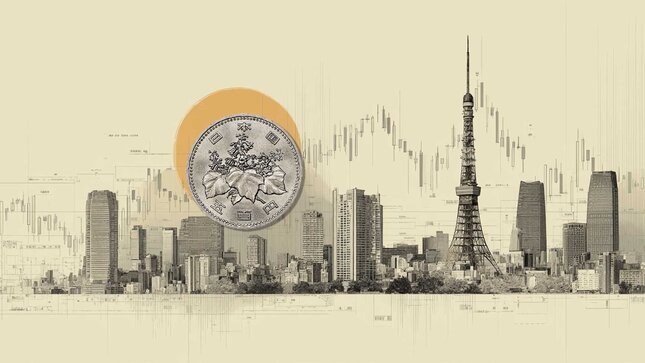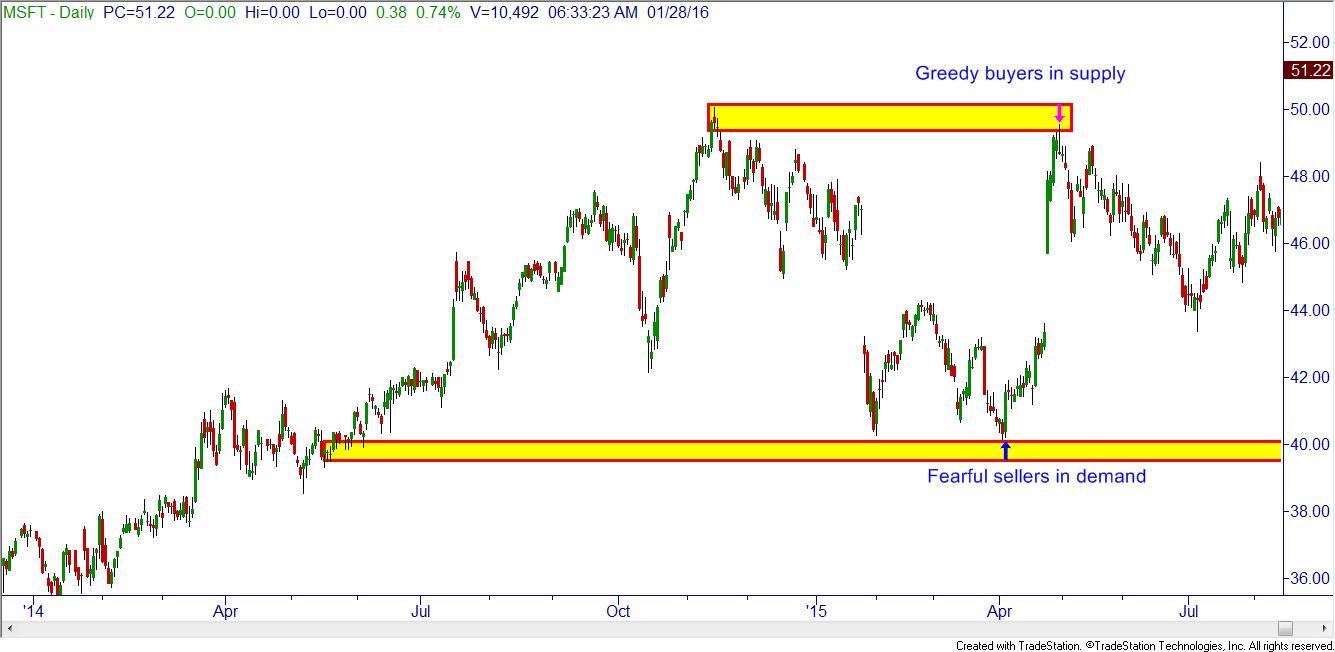![]()
Hello traders! Recently I received an email from an Online Trading Academy student from Arizona. The question was about which asset class to trade next. While you might think my answer would be automatic: forex of course! The real answer is a bit more complicated. This week I’d like to break down the basic differences, including pros and cons of the different asset classes, so future students can make a better informed decision. Off we go!
When having this discussion in a classroom I always start with equities (stocks). The reason for this is that most people are already a little familiar with the stock market. So here (in my humble opinion) are the pros and cons of trading stocks.
Pros of Trading Stocks:
Stocks are easy! Because the two underlying emotions in trading, fear and greed, are so easily visible on stock charts, to me this is the easiest asset class to trade. The main reason for this seems to be that so many retail traders trade stocks, and so many of them do the wrong thing in the market, the mistakes are obvious. (This could lead to a long winded commentary on hedge funds, how they are mostly run by very bad traders who just chase momentum stocks, soaking their clients for huge fees and underperforming the S&P 500; but it won’t.) In the following chart of MSFT I’ve marked two areas where fear and greed took over the rational traders’ decision. Buying AFTER a large run up into supply is greed, and selling AFTER a large drop into demand is fear.
Cons of Stock Trading:
Trading stocks is expensive! By this I mean that the leverage in the stock market is very small. In a margin account your broker will usually offer you a 2:1 leverage, you put up $50,000, and you can actually buy $100,000 worth of stock. Hurray, using Other People’s Money to make money! With a day trading account, the broker can offer you 4:1. Even better! However, be aware that with higher leverage also comes higher risk.
Bottom line: stocks are easy, but expensive.
The next asset class is futures.
Pros of Futures Trading:
Better leverage! This asset class is a little harder to define the actual leverage being offered. For basics, we’ll just say that it ranges from about 10:1 to about 40:1. In the futures market, you can also trade things like gold, oil, wheat and even the S&P 500. Plus, many futures contracts offer almost 24 hour a day trading! Who wants to trade at 10pm or 4am or 11am? I know I do.
Cons of Trading Futures:
My belief is that the “quality” of traders you are competing against is a bit higher than in stocks. Stiffer competition means slightly more difficult trading. However, it isn’t like moving from sandlot baseball to playing against the New York Yankees! Another con is the fact that futures have a few more rules/things to know, like expiration dates, rollover, some contracts trade different times of the day than others.
Bottom line: Futures offer better leverage and more times of the day to trade, but they are a bit more complicated than plain old stock trading.
The third asset class we’ll discuss is forex.
Pros of Forex Trading:
Great leverage! Generally we can get anywhere from 20-50:1 for United States based traders. We also have 24 hour trading, starting Sunday afternoon and going all the way to Friday afternoon. In forex, we only really have a couple dozen different currency pairs to trade, where stocks have literally thousands to choose from. One of the best things about trading forex is that you can start trading very small. You can actually take trades where your risk amount is pennies. Wouldn’t it be nice to learn to trade where the most you can lose is $1?
Cons of Trading Forex:
Because forex is what we call a de-centralized market (there isn’t one place where all the trades and quotes are reported), different brokers will often show slightly different prices. Consequently, their charts will be slightly different as well. This can lead to more losses for the short term breakout trader.
Bottom line: Great leverage and 24 hour trading are terrific, but small time frame traders can often do poorly because of the de-centralized market.
Last but not least, options. I love options!
Pros of Options Trading:
Options offer higher leverage than stocks; you can trade options on individual stocks where you can still take advantage of the fear and greed on the charts, thereby taking the good stuff from stocks and eliminating one of the cons. With the right option strategies, you can even make money when the market doesn’t move. Another good thing about options is that you can be “less precise” with your entries. Instead of buying in a quality demand zone and selling in a quality supply zone, you can place option trades where your chosen stock isn’t likely to go. Nice and vague, right?
Cons of Trading Options:
Options have an entirely new language to learn. Many new students come to Online Trading Academy with a bit of experience in the world of trading. They use terms like “support” and “resistance”. We prefer demand and supply, among others. These terms translate easily from stocks to futures to forex. In the options market you will learn many new terms like “time decay” and “open interest” to name a couple. For those of you who like math and numbers, options would probably be a great asset class to trade. For those of you who don’t, focusing on the “easier” option strategies can certainly make you money as well.
Bottom line: Options offer you tons of versatility, but also a bit more complication.
There you have it, traders, a basic, 10,000 foot overview into the pros and cons of the different asset classes! Always talk to your Online Trading Academy Education Counselor to help figure out what will be the best for your personality and financial situation.
This content is intended to provide educational information only. This information should not be construed as individual or customized legal, tax, financial or investment services. As each individual's situation is unique, a qualified professional should be consulted before making legal, tax, financial and investment decisions. The educational information provided in this article does not comprise any course or a part of any course that may be used as an educational credit for any certification purpose and will not prepare any User to be accredited for any licenses in any industry and will not prepare any User to get a job. Reproduced by permission from OTAcademy.com click here for Terms of Use: https://www.otacademy.com/about/terms
Editors’ Picks

EUR/USD: US Dollar to remain pressured until uncertainty fog dissipates Premium
The EUR/USD pair lost additional ground in the first week of February, settling at around 1.1820. The reversal lost momentum after the pair peaked at 1.2082 in January, its highest since mid-2021.

Gold: Volatility persists in commodity space Premium
After losing more than 8% to end the previous week, Gold (XAU/USD) remained under heavy selling pressure on Monday and dropped toward $4,400. Although XAU/USD staged a decisive rebound afterward, it failed to stabilize above $5,000.

GBP/USD: Pound Sterling tests key support ahead of a big week Premium
The Pound Sterling (GBP) changed course against the US Dollar (USD), with GBP/USD giving up nearly 200 pips in a dramatic correction.

Bitcoin: The worst may be behind us
Bitcoin (BTC) price recovers slightly, trading at $65,000 at the time of writing on Friday, after reaching a low of $60,000 during the early Asian trading session. The Crypto King remained under pressure so far this week, posting three consecutive weeks of losses exceeding 30%.

Three scenarios for Japanese Yen ahead of snap election Premium
The latest polls point to a dominant win for the ruling bloc at the upcoming Japanese snap election. The larger Sanae Takaichi’s mandate, the more investors fear faster implementation of tax cuts and spending plans.
RECOMMENDED LESSONS
Making money in forex is easy if you know how the bankers trade!
I’m often mystified in my educational forex articles why so many traders struggle to make consistent money out of forex trading. The answer has more to do with what they don’t know than what they do know. After working in investment banks for 20 years many of which were as a Chief trader its second knowledge how to extract cash out of the market.
5 Forex News Events You Need To Know
In the fast moving world of currency markets where huge moves can seemingly come from nowhere, it is extremely important for new traders to learn about the various economic indicators and forex news events and releases that shape the markets. Indeed, quickly getting a handle on which data to look out for, what it means, and how to trade it can see new traders quickly become far more profitable and sets up the road to long term success.
Top 10 Chart Patterns Every Trader Should Know
Chart patterns are one of the most effective trading tools for a trader. They are pure price-action, and form on the basis of underlying buying and selling pressure. Chart patterns have a proven track-record, and traders use them to identify continuation or reversal signals, to open positions and identify price targets.
7 Ways to Avoid Forex Scams
The forex industry is recently seeing more and more scams. Here are 7 ways to avoid losing your money in such scams: Forex scams are becoming frequent. Michael Greenberg reports on luxurious expenses, including a submarine bought from the money taken from forex traders. Here’s another report of a forex fraud. So, how can we avoid falling in such forex scams?
What Are the 10 Fatal Mistakes Traders Make
Trading is exciting. Trading is hard. Trading is extremely hard. Some say that it takes more than 10,000 hours to master. Others believe that trading is the way to quick riches. They might be both wrong. What is important to know that no matter how experienced you are, mistakes will be part of the trading process.
The challenge: Timing the market and trader psychology
Successful trading often comes down to timing – entering and exiting trades at the right moments. Yet timing the market is notoriously difficult, largely because human psychology can derail even the best plans. Two powerful emotions in particular – fear and greed – tend to drive trading decisions off course.



